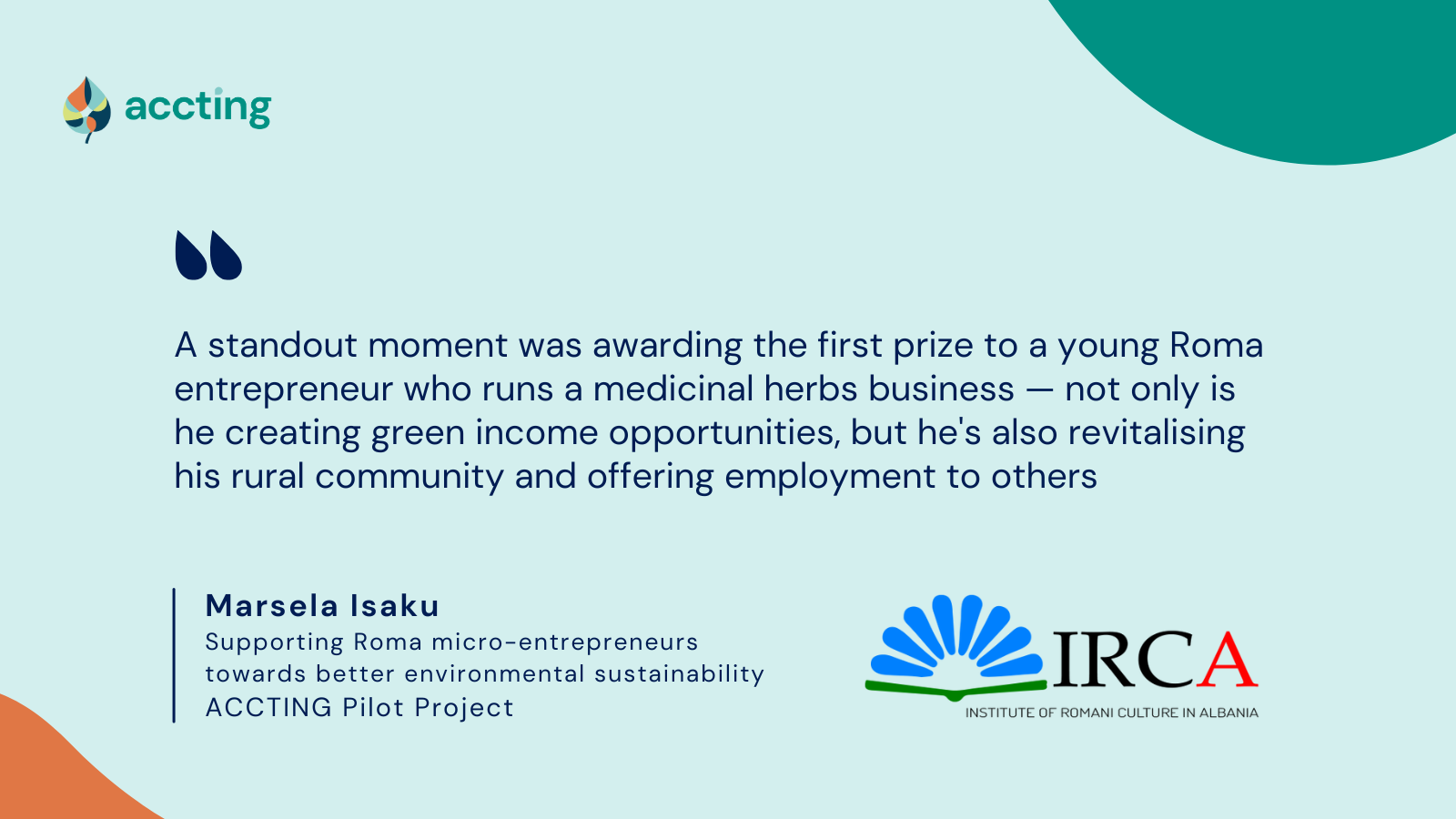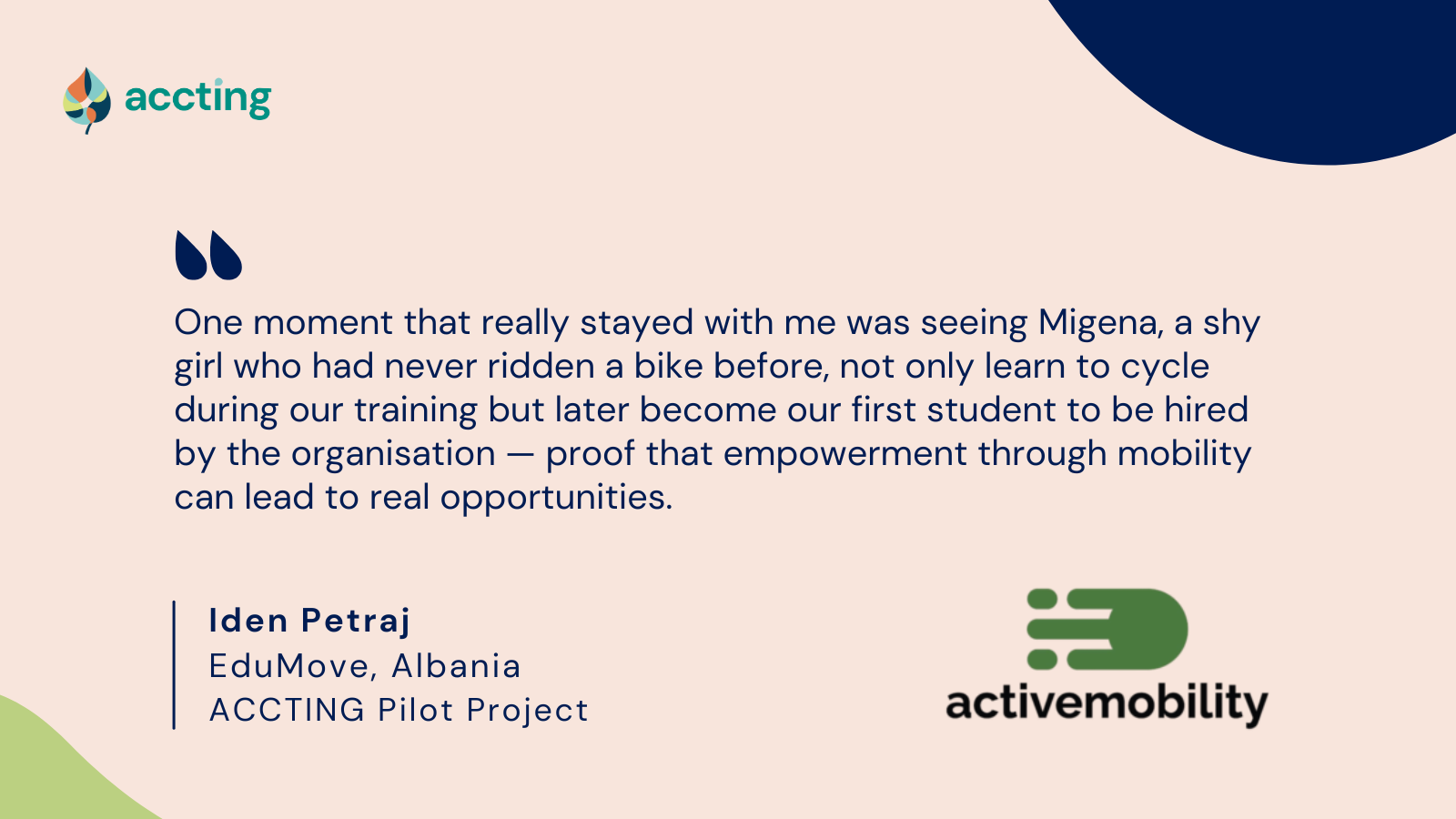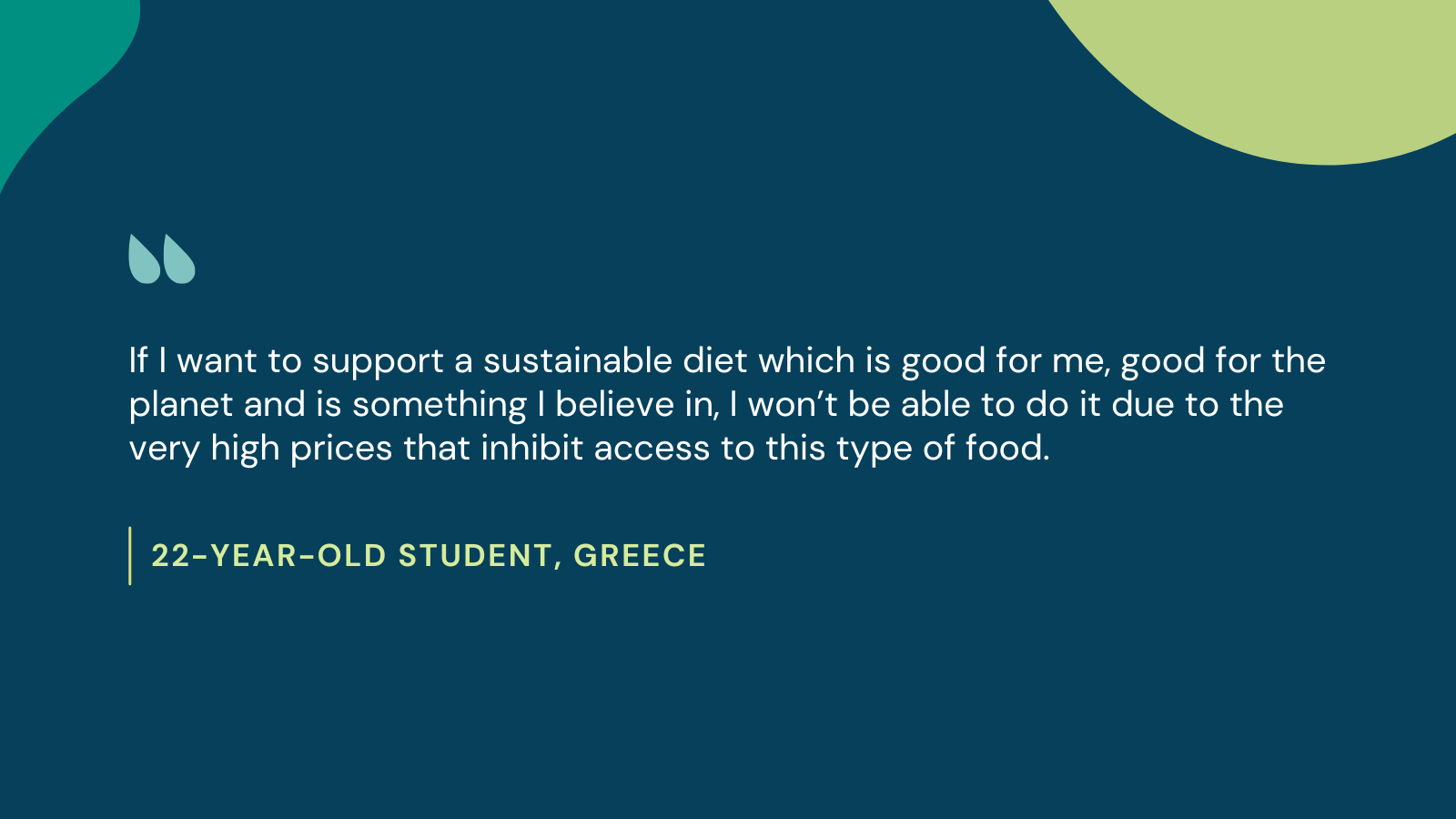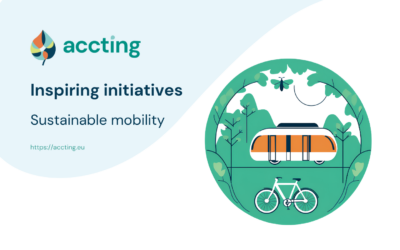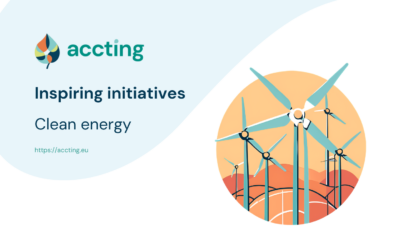The impact of climate change and the capacity to mitigate its negative impacts are unevenly distributed across and within societies; it is the poorer, marginalised and vulnerable groups who are the most acutely affected. ACCTING has collected 358 narratives via individual interviews in 13 European countries to capture some of the experiences of those vulnerable groups. These narratives on inequalities in enablers and hindrances for advancing behavioural change span eight thematic research lines – each addressing an EU Green Deal policy area. Read our dataset including all 358 narratives collected.
Daily bike trains to school were the triggering event to develop a new kind of mobility
“My name is Alexandre, I am married and I am 40 years old. I was born in Porto and I have been living in Lisbon for some years now. I work in technology. I have two daughters. One is 8 years old and the other is 3 years old. As a child, while living in Porto, I used to cycle until I was 16. I cycled a lot and I even went to school by bike a lot. The school was very close, and I would normally walk there, but I would also cycle a lot with my friends. Then, I bought a motorbike at the age of 16, so the bicycle became less important for me. I am a sportsman and I like physical activity very much. I have always done physical exercise, namely running, playing football, and going for walks. My daughter who is 6 years old is also encouraged by us to do exercise. We walk a lot and she also keeps me company by running. I have also been very concerned about ecology from a very young age. I have environmental concerns and I always wanted to give my children a new vision of how to get around. It is very different going to school by car, instead of walking, for example. If they walk or cycle, they see things differently.
“It is true that the pandemic has changed our way of seeing things a little bit. I am a big believer that our experiences will lead us to make different decisions”
With the outbreak of the pandemic, I thought of buying a bicycle so that I could move around. I have to use a car for my work. So, I bought a bicycle to spend some time and I started to move around by bicycle. When I was dropping my daughter off at school, I would always see a group of bicycles and it made me wonder why I was always stuck in traffic. Then, one day, I remembered to go by bike to pick up my daughter from school and I took her bike too. We both went home by bike. We go from Ajuda to Restelo. It is still about 15 or 20 minutes. We did this once or twice, and in the meantime we met the other participants of the Restelo bicycle train. It was at that time that this change to using a bicycle began. But we do not only cycle, we also walk with the children to school several times a week. I think we have started to develop a new kind of mobility. My daughter, who is now 8 years old, goes to school on her bicycle, and because we offer alternatives to the car, she is already looking at mobility in a different way. Our youngest daughter also goes with us. We use a smaller car seat to transport her. This change is not exactly related to the outbreak of the pandemic, because if I had met these colleagues from the bicycle group before, I think I would have started then. Even at my work, we were already teleworking and video conferencing before the pandemic. So, I did not feel affected. The only difference I felt was that I travelled less often. We do face-to-face meetings less and less. We are all used to working remotely by now. When we see that there is a need to maintain face-to-face contact, maybe we try to have that, but we are working remotely more and more. As for my commute, I wake up around 7am and leave around 8am. We get on our bicycles and take the children to school, which is in Restelo. We often ride together on the bicycle train. We meet up with other people along the way and the bike train gets bigger with more children. After dropping my daughter off at school, I return to the Ajuda area to bring my youngest daughter to school too. Then, I cycle to the docks area where our office is. This office was chosen so that I could keep this green mobility. I could have some benefits from having an office in a more central part of town. It would be easier for me to commute and be with clients. Here, I sometimes have to use the car, but I rarely do. Then, at the end of the day, I go back to the Restelo area to pick up my eldest daughter. I go home, leave my bicycle there, and pick up my youngest daughter on foot.
“If I have to move to another office, I will try to stick with the possibility of using bicycle, it will be a condition”
Regarding shopping, we choose to buy locally. We live in an area where there is a lot of retail. Sometimes we go to a bigger supermarket because it is relatively close, but traditionally we try to shop locally, right there on our street. When we need to buy a larger quantity of products, or heavier products, we use the car. During the weekend, we use the bicycle to go out, or to go to a museum, or to take the children for a ride by the river. In the past, we used to walk more. Today, we cycle more often. The four of us go on bike picnics. We use the bicycle a lot more now. But it is not possible to do everything by bicycle or on foot. My wife has to take our eldest daughter to other places. For that reason and others, we still keep the car with us. For example, if it is raining a lot, we use the car to take the children. I think cycling has many advantages and is very beneficial in many ways. Cycling becomes a faster way of getting around for me. Riding a bicycle is also more enjoyable, in my opinion. Furthermore, cycling is more economical. Regarding the pandemic, we spent more time at home during the lockdown. We were working more at home, and we did not commute by car as much. I was working in the city centre at the time, and I was driving every day. As I stopped commuting, I started to have other experiences. On the one hand, not being in traffic was a very good thing: The truth is that today I have much less patience when I have to get in the car. For example, it is much more difficult to know that I have to go to a certain place by car, I know I am not going to like it.
“If I can, I will try to reduce our ecological footprint. Nowadays, I think a lot before I use the car to commute”
Regarding aspects to be improved, perhaps public transport could be better in terms of supply. Just yesterday we took the tram to Alcântara, and went to the library with the children, and then we waited almost 40 minutes for the tram back. We gave up waiting for the tram. We caught another tram, and then we walked home. So, if public transport were more efficient, maybe people would use it more. If transport was free, cleaner and more frequent, maybe people would use it more.”

